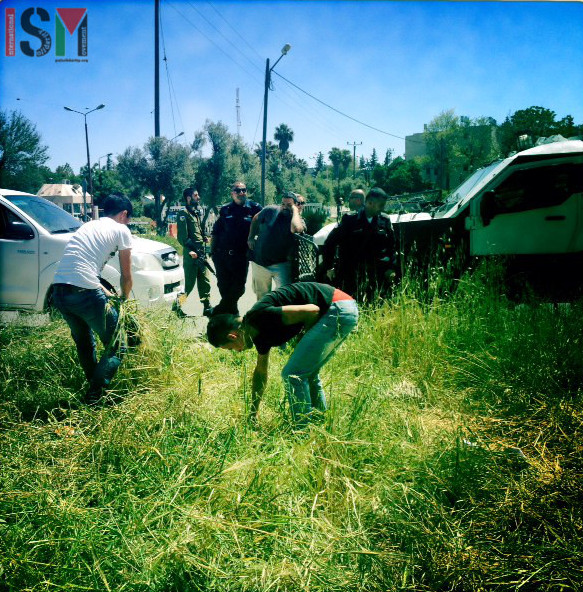Tag: Settlement
-
Israeli forces break the arm of a Palestinian man at peaceful protest, Beit Ummar
30th May 2015 | International Solidarity Movement, Khalil Team | Beit Ummar, Occupied Palestine Today in Beit Ummar, just north of Al Khalil (Hebron), Israeli forces broke the arm of local activist Yousif Abu Maria, and then arrested him. Yousif was protesting with a group of around 30 local Palestinian activists outside an illegal Israeli…
-
Harvesting While Harassed- Jabari family face military and settlers to gather their crops
3rd May 2015 | International Solidarity Movement, Khalil Team | Hebron, Occupied Palestine The Jabari family owns land sandwiched in between the illegal settlements of Kiryat Arba and Givat Ha’vot. In 2001, settlers illegally took over part of the land to erect a synagogue-tent on the Jaabari-family land. All settlements are illegal under international law,…



